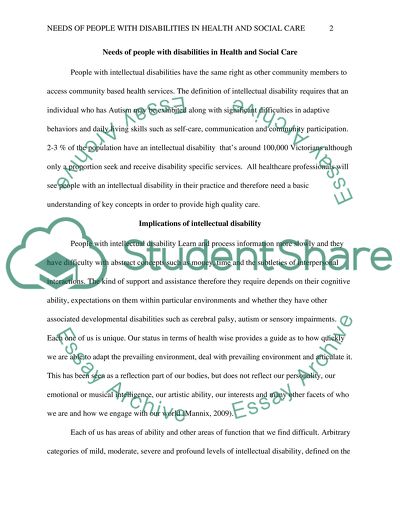Cite this document
(“Needs of people with disabilities in Health and Social Care Assignment”, n.d.)
Retrieved from https://studentshare.org/health-sciences-medicine/1635530-understanding-specific-needs-in-health-and-social-care
Retrieved from https://studentshare.org/health-sciences-medicine/1635530-understanding-specific-needs-in-health-and-social-care
(Needs of People With Disabilities in Health and Social Care Assignment)
https://studentshare.org/health-sciences-medicine/1635530-understanding-specific-needs-in-health-and-social-care.
https://studentshare.org/health-sciences-medicine/1635530-understanding-specific-needs-in-health-and-social-care.
“Needs of People With Disabilities in Health and Social Care Assignment”, n.d. https://studentshare.org/health-sciences-medicine/1635530-understanding-specific-needs-in-health-and-social-care.


